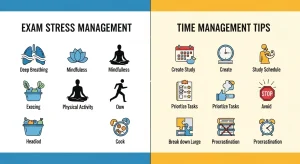What Is Remote & Hybrid Work Culture?
Remote and hybrid work culture refers to the evolving work models where employees perform their duties from remote locations, partially or fully, instead of traditional office settings. While remote work allows employees to work entirely outside the office, hybrid work offers flexibility — blending in-office and remote work schedules.
Driven by necessity during the pandemic and embraced by companies for its productivity and cost-effectiveness, this new culture has now become a strategic advantage.
🧠 Primary Keyword: Remote & hybrid work culture
🔍 Focus Keywords: remote work, hybrid work, virtual collaboration, future of work, flexible work environment, work from home, employee productivity
The Rise of Remote & Hybrid Work
Since 2020, the global workforce has undergone a dramatic shift. What began as a crisis response is now an established future of work model. Businesses around the world have restructured their operations, tech stacks, and workflows to support virtual collaboration and flexible work environments.
📊 Key Stats:
-
Over 60% of employees want hybrid work options long-term
-
85% of businesses report increased productivity with remote teams
-
Companies are saving an average of $11,000 per year per remote worker
Benefits of Remote & Hybrid Work Models
✅ 1. Flexibility and Work-Life Balance
Employees can choose where and when they work, improving work-life balance and reducing burnout.
✅ 2. Access to Global Talent
Companies can hire skilled professionals from anywhere, increasing diversity and innovation.
✅ 3. Cost Savings
Organizations save on office space, utilities, and overheads while employees cut down on commuting costs.
✅ 4. Enhanced Productivity
With fewer office distractions and flexible schedules, many remote employees report higher levels of focus and output.
Challenges in Remote & Hybrid Work Culture
Despite the benefits, remote & hybrid work culture brings some challenges:
| Challenge | Solution |
|---|---|
| Communication breakdowns | Use tools like Slack, Zoom, and Notion |
| Collaboration barriers | Adopt real-time collaboration platforms |
| Team bonding difficulties | Host virtual events and in-person meetups |
| Managing performance remotely | Use project management and productivity tools |
Proactively addressing these challenges ensures a healthy virtual work environment.
Best Practices for a Successful Hybrid or Remote Team
🔹 1. Embrace Technology
-
Use tools like Microsoft Teams, Zoom, Trello, and Asana
-
Invest in secure file-sharing platforms
-
Encourage async communication for different time zones
🔹 2. Set Clear Expectations
-
Define work hours, deliverables, and response times
-
Use OKRs (Objectives & Key Results) to track performance
-
Document policies in a centralized knowledge base
🔹 3. Prioritize Mental Health
-
Encourage regular breaks
-
Offer wellness programs
-
Provide access to virtual therapy or meditation sessions
🔹 4. Foster Culture and Belonging
-
Celebrate wins, birthdays, and team achievements
-
Conduct virtual happy hours or coffee chats
-
Create Slack channels for hobbies or interests
What Companies Are Saying About the Future of Work
Top companies like Google, Microsoft, and Spotify have adopted hybrid work policies, citing increased employee satisfaction and reduced overhead.
Even smaller startups are realizing that remote-first culture helps attract top talent and supports sustainable growth.
FAQ – Remote & Hybrid Work Culture
❓ What is the main difference between remote and hybrid work?
Remote work is entirely offsite, while hybrid work combines remote and in-office work, offering employees flexibility based on role or schedule.
❓ Is remote work more productive than in-office?
Studies suggest that remote work can boost employee productivity, especially when supported by clear communication and modern tools.
❓ How do companies maintain team engagement in hybrid models?
Through regular check-ins, transparent communication, virtual collaboration tools, and intentional team-building activities.
Final Thoughts: Adapting to a Flexible Work Culture
The shift to remote & hybrid work culture isn’t just a trend — it’s a fundamental transformation of how work is done. Organizations that embrace this evolution with the right tools, policies, and mindset will stay ahead in the future of work.
It’s not about where work happens — it’s about how it’s done, and how well it’s supported.











